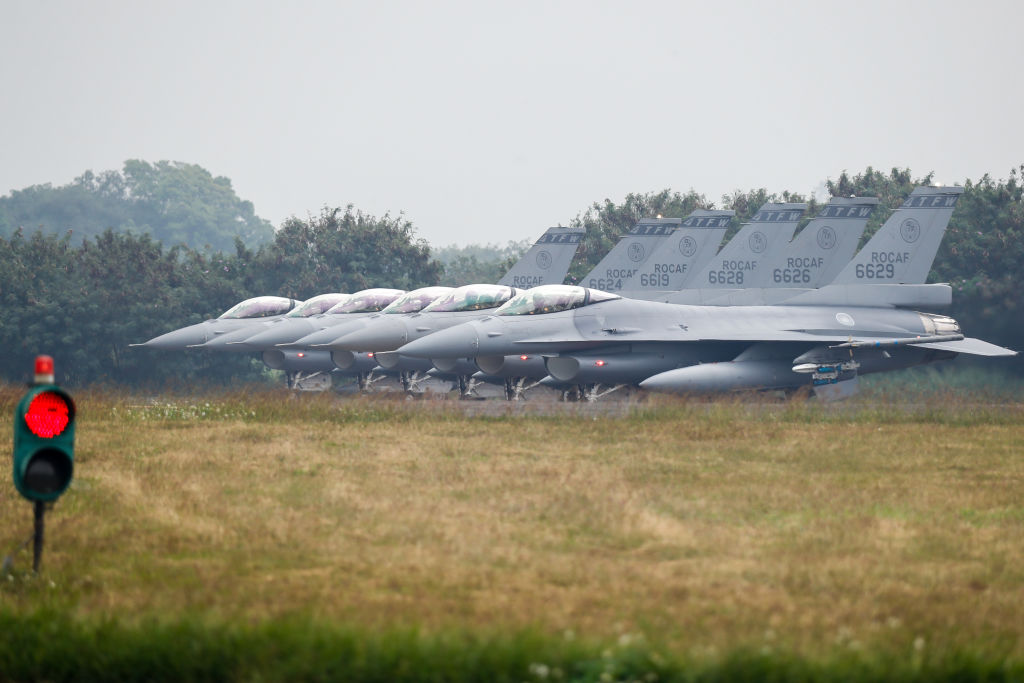Russia–Ukraine war shows Australia can’t afford to be caught short if China invades Taiwan

Many are asking what lessons China is drawing from Russia’s invasion of Ukraine for its own plans to bring Taiwan to heel. Writing in the national business daily, the Australian Financial Review, international relations specialist James Curran asks a different question. What lessons should Australia draw from Vladimir Putin’s invasion for managing a comparable crisis in Taiwan?
Australian businesses are likely to be asking the same question. What are the lessons of Ukraine for business? How does China feature in their calculations? For businesses, the answers to these questions are likely to be different from those Curran advances.
For Curran there are three lessons. Australia should not assist Taiwan militarily, since that would come at catastrophic human cost, and Canberra should not impose sanctions for fear of devastating economic costs. Third, it would be a mistake to isolate China in the same way Russia was excluded from participation in a prosperous European economy for fear that Beijing would respond like Moscow with blind indifference to the consequences.
If all countries heeded Curran’s advice, then the risks of major human and economic costs of Beijing’s occupation of Taipei would be reduced. History would take its course—with apologies to Taiwan and its people—and we could all get on with trading and investing.
That’s not how businesses or economies work in the real world. Planning around supply chains, technical support, marketing and inward and outward investment involves risk calculation. The most difficult risks to plan for are those in the ‘low probability, catastrophic consequences’ quadrant of the matrix. At a moment which Chinese President Xi Jinping describes as a time of ‘major changes unseen in a century’, few businesses can afford to ignore any risks that carry catastrophic consequences or neglect to factor them into business planning.
So how does the war in Ukraine impact on China’s plans for Taiwan? Charles Parton of the British Council on Geostrategy maintains that the Ukraine situation has no bearing on a possible invasion of Taiwan, since Beijing is perfectly capable of weighing up the costs and risks of military action without signals from Moscow or Washington. Craig Singleton of the Foundation for Defense of Democracies, on the other hand, argues in Foreign Policy that Putin’s battlefield setbacks in Ukraine will have sent China’s defence planners back to the drawing board.
But really, who knows? We know next to nothing about how Beijing is drawing lessons from Ukraine because we lack access and intelligence. Our ignorance is a fact that needs to be factored into risk assessments.
Contrast US intelligence on Putin’s forward planning. Washington knew everything there was to know about the invasion ahead of time. Even now, though, it can’t be certain whether Putin told Xi of his plans to invade because that conversation took place not in Moscow, but in Beijing, where the US lacks intelligence eyes and ears.
Security analyst Zach Dorfman of the Aspen Institute exposed how America’s intelligence network in China was compromised shortly before Xi came to power, when CIA assets embedded at senior levels of China’s party, government and military agencies were identified and eliminated. Since then, Beijing has instituted measures to minimise the likelihood of foreign intelligence networks gaining a foothold in China.
The result is that the West as a whole is left guessing about Xi’s intentions in a way it wasn’t about Putin’s. That tells us a lot about the risks we face in relation to Taiwan. How do we factor in something that cannot be known but could have catastrophic consequences? How should Australian businesses plan for events of enormous impact that they can discover little about?
What happens in Russia, Ukraine or anywhere else is not a lesson for China. It’s an opportunity, a chance to shift the global balance of power and remake the international order in favour of Beijing. This much we know.
We also know that Xi is determined to compel Taiwan to join the People’s Republic of China whatever the cost. If he resorts to coercion or military force then, however Australia responds, the risks for businesses are potentially catastrophic. Any Australian business dependent on China for supplies or technical inputs or for markets or investments is likely to face customer boycotts if not international sanctions that would compel it to exit the market and compete with others in a scramble for alternatives.
By then it will be too late. If Ukraine teaches Australia anything, it’s that businesses and others with a high level of exposure to China should be planning for the worst while hoping for the best.
The point is not to isolate Beijing—China is doing its best to isolate itself from Australia—but to manage business risks ahead of competitors who have not yet got the message.
